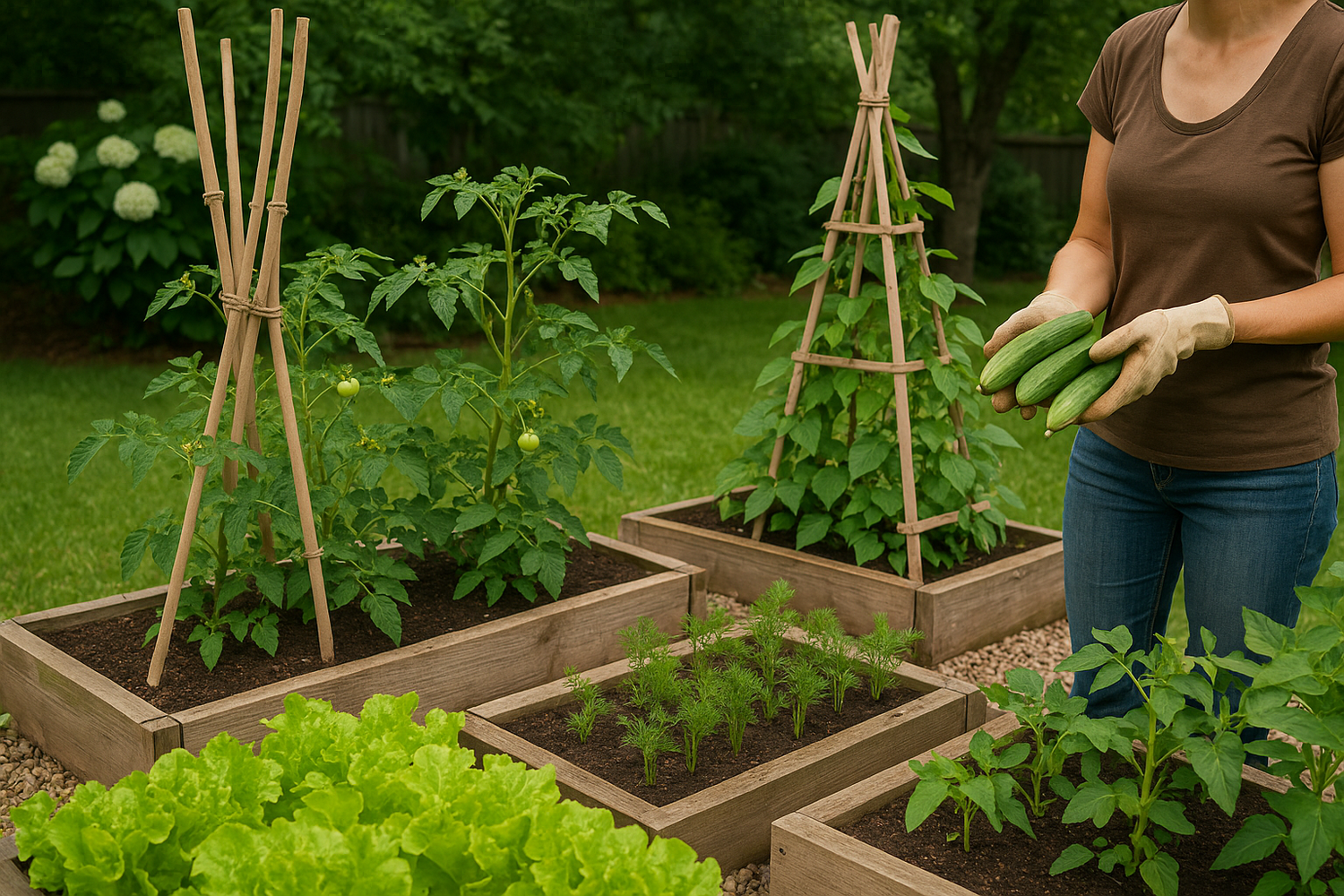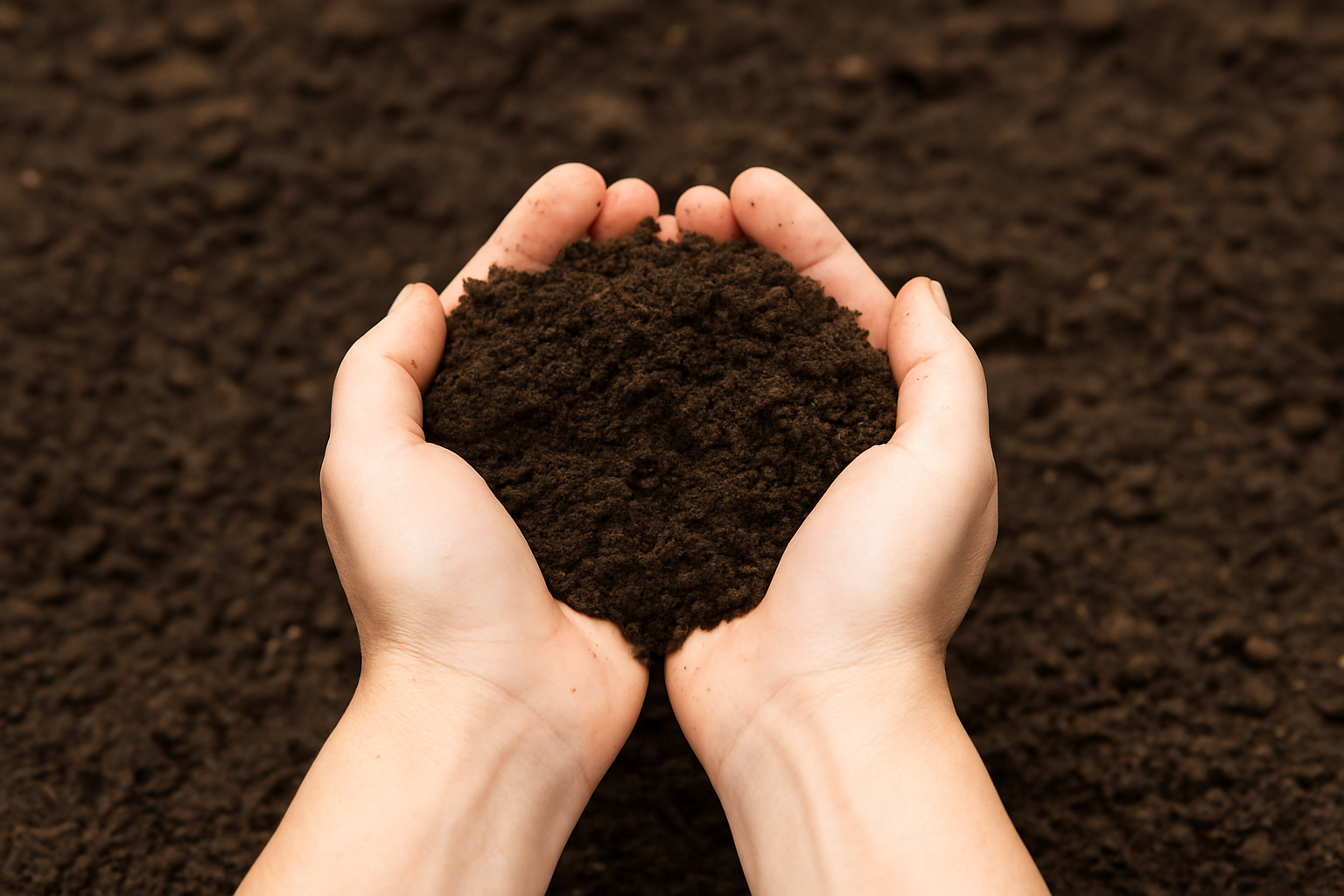Have you ever thought about starting a garden this spring? Now is the perfect time to begin planning!
Whether you're a complete beginner or a seasoned herbalist, there's something truly special about harvesting fresh herbs straight from your own garden. When you connect with a plant through its entire life cycle—from seed to maturity—a sacred relationship naturally forms.If you’re crafting your own herbal remedies, growing your own ingredients adds a new level of potency and pride to your practice. And when it comes to aromatic herbs, the growing process can be as simple or as complex as you want. You can plant them in a small pot on your windowsill or dedicate a full patch in your yard. You can start them from seed or buy transplants from a nursery.
Having your own medicinal garden is one of the best ways to ensure the quality of your herbs, while also easing pressure on wild plant populations. Using plants just steps away from your home is the most sustainable way to make medicine. Many aromatic herbs grow abundantly with little maintenance. Below are 13 easy-to-grow aromatic plants to consider for your garden this spring.
1. Sage
Sage is a versatile herb that grows well both in small pots indoors or in the ground outdoors. It thrives in full sun and well-drained soil and is hardy in USDA zones 4 to 8. Sage grows well alongside rosemary, but make sure to give each plant several feet of space.
There are many varieties of sage: common (garden) sage (Salvia officinalis), white sage, Spanish sage, and clary sage, among others. Sage is a perennial that prefers hot, sunny conditions. It's worth noting that white sage has been overharvested in the wild and is now considered endangered—growing your own is the most sustainable and ethical way to use it.
Sage supports the respiratory, digestive, nervous, and circulatory systems. It may be used for colds, hot flashes, sore throats, hair loss, nerve dysfunction, swollen lymph nodes, excessive sweating, and heart tension. Sage can be used in incense, cooking, tea, or as an essential oil. Its aroma is beneficial for calming the heart and promoting mental clarity.
2. Lavender
Common types include English, French, Portuguese, and Spanish lavender. Generally, they grow well in zones 5 to 9. Lavender is a perennial that loves full sun and well-drained soil. It's drought-tolerant, so be careful not to overwater—watering every 1–2 weeks is usually sufficient.
Lavender’s fragrance makes it a wonderful garden addition. It can be used in incense, baking, body care products, essential oils, and herbal teas. In Ayurveda, lavender is believed to regulate heart rate, lower blood pressure, ease tension, and reduce skin inflammation. It is used to calm anxiety, depression, insomnia, hormonal imbalance, headaches, and migraines.

3. Thyme
Thyme is a fragrant perennial herb that grows well in most climates. It prefers well-drained soil and full sun. Water every 1–2 weeks. Seeds can be sown indoors or directly in the soil in late spring.
Popular varieties include garden thyme (Thymus vulgaris) and lemon thyme. Thyme is excellent in food or tea and is known to support immunity, fight infections, relieve cold and flu symptoms, and support the thymus gland.
4. Lemon Balm
Lemon balm (Melissa officinalis), a member of the mint family, grows in full sun or partial shade and tolerates a variety of soil conditions. Its citrus-mint aroma lifts the mood and improves focus.
It’s commonly used to make tea that supports digestion, appetite, PMS and menopause symptoms, menstrual regulation, and emotional balance. As an essential oil, it may relieve depression, insomnia, and anxiety. Topically, it can help with muscle and joint pain.
5. Rosemary
Rosemary’s invigorating aroma is great for boosting energy and mood. It's a hardy perennial shrub with blue-purple flowers in spring. It prefers full sun and well-drained soil and grows well in both containers and garden beds.
In the ground, rosemary can grow up to 5 feet tall and wide. When planting multiple rosemary plants, space them 3–4 feet apart. If you'd like to keep it smaller, grow it in a medium container.
Rosemary supports brain and heart health and is used in cooking, tea, and essential oil. Its volatile oils stimulate circulation and aid mental clarity.

6. Calendula
Calendula isn’t aromatic but is a valuable herb for skin healing. It’s antifungal, antibacterial, and helps prevent infection in wounds. It tolerates regular soil and grows in partial shade or full sun.
Calendula brings vibrant color to your garden and attracts pollinators. It’s usually grown as an annual, but seeds are easy to collect and often self-sow. The orange blossoms can also be used as a natural dye for fabric or food.
7. Chamomile
The two main types are Roman chamomile (Chamaemelum nobile, a perennial for zones 4–11) and German chamomile (Matricaria recutita, often grown as an annual).
Chamomile is typically used as tea to support digestion and relaxation. It can relieve headaches, soothe nerves, and promote menstruation. Chamomile flowers can be made into oils or salves for nerve pain and skin healing.
8. Mint
There are many mint varieties: peppermint, spearmint, apple mint, chocolate mint, water mint, Egyptian mint, and more.
Mint is known for spreading aggressively, so it’s best grown in containers. It prefers rich, well-drained soil and sun to partial shade.
Mint helps with digestive discomfort, sore throats, inflammation, headaches, and fevers. It calms the nervous system and clears the mind.
9. Oregano
A perennial herb native to the Mediterranean, oregano is part of the mint family. It grows in sun or partial shade and prefers fertile, well-drained soil.
Oregano aids digestion, bloating, and gas, and supports the immune system. It’s used in cooking, teas, and herbal infusions.

10. Holy Basil (Tulsi)
Native to the Indian subcontinent, holy basil (Ocimum sanctum) is a perennial herb that thrives in warm temperatures. Start seeds indoors in spring, then transplant when it’s warm outside.
It can grow about a foot tall and does well in pots or garden beds. Holy basil revitalizes the body and supports longevity. Tulsi tea aids digestion and balances mind and body.
11. Mugwort
Mugwort spreads easily, so plant it in containers or areas where spreading is welcome. It prefers full sun and well-drained soil and can be started from seed indoors or directly outdoors.
Mugwort supports the female reproductive system, nerves, digestion, and circulation. It helps relieve menstrual cramps, balance cycles, ease headaches, soothe body aches, and cleanse the blood. Not recommended during pregnancy.
12. Rose
There are many rose varieties to grow. Damask and apothecary roses are commonly used for essential oils and tea. Roses are perennials that need at least 6 hours of sun and well-drained soil.
Plant in spring or early fall to allow roots to establish before winter. Roses can be used in oils, teas, syrups, incense, and bath soaks. They are cooling and beneficial for the skin. After summer pollination, rose hips form—rich in vitamin C and great for immune support.
13. Marjoram
A perennial herb in zones 9 and warmer, marjoram may be grown as an annual in colder climates. It grows well in full sun and supports the nervous system.
Used in teas, incense, or essential oils, marjoram calms the mind, eases congestion, stimulates circulation, and helps relieve pain.

Why Smart Irrigation Makes a Difference
When growing aromatic herbs—especially perennials like rosemary, lavender, and thyme—consistent, well-timed watering is key to maintaining healthy growth and preserving the concentration of their essential oils. A smart irrigation system, like Cabay's, can take much of the guesswork out of this process. By automatically adjusting watering schedules based on local weather, soil moisture, and plant type, it ensures your herbs get just the right amount of water—no more, no less. This not only supports healthier plants and better yields but also helps conserve water and reduces the risk of overwatering, which can be especially harmful to drought-tolerant herbs.
Deepen Your Connection with Plants
Growing aromatic herbs at home is a beautiful way to connect with the spirit and healing potential of plants. Whether you buy young plants from a nursery or start seeds indoors or outside, planting your own herbal garden can be a deeply rewarding experience.
This spring, try your hand at gardening—it’s a wonderful path to reconnecting with nature and nurturing new life.




Hinterlasse einen Kommentar
Diese Website ist durch hCaptcha geschützt und es gelten die allgemeinen Geschäftsbedingungen und Datenschutzbestimmungen von hCaptcha.